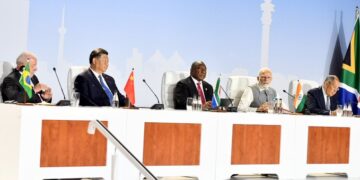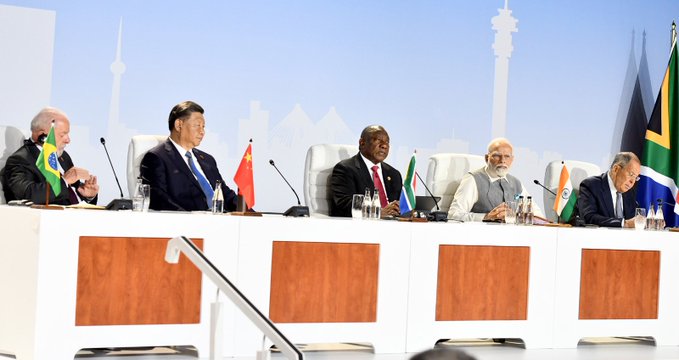Brazil, Russia, India, China and South Africa (BRICS) Thursday adopted guiding principles on the BRICS expansion to admit new countries at the 2023 Summit held in Johannesburg, South Africa.
On the same day, the group announced new members including; Argentina, Egypt, Ethiopia, Iran, Saudi Arabia and the United Arab Emirates (UAE).
Speaking on the occasion, Brazil President, Lula da Silva, said BRICS has started a working group to study a reference currency for BRICS.
“With its expansion, the GDP of BRICS is now 36% of global GDP and 47% of the world’s population. BRICS countries will continue to be a driving force to promote peace and global multilateralism,” he noted.
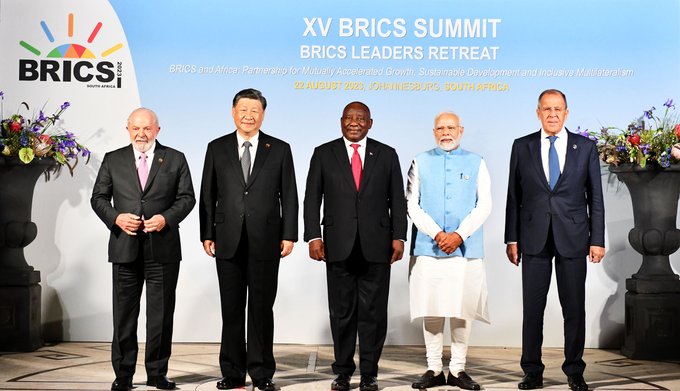
Narendra Modi, Prime Minister of India, said his country will continue to build consensus for those countries wishing to join BRICS.
“Expansion and modernisation of BRICS is a message that global institutions must mould themselves to changing times; an example of reform for other global institutions,” he said.
According to China President, Xi Jinping, the leaders of the five BRICS nations unanimously agreed to invite new countries as official members.
“This membership expansion is historic and shows the determination of BRICS for unity and cooperation of developing countries,” he pointed out.
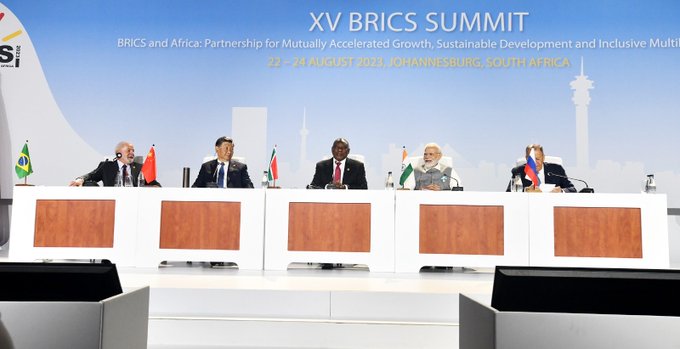
He said the expansion is also a new starting point for BRICS cooperation and will bring new vigour to the BRICS cooperation mechanism and strengthen efforts for world peace and development.
In his remarks, Russian President, Vladimir Putin, said the adoption of the guiding principles in the expansion of BRICS will ensure that the role and importance of BRICS in the world will continue to grow.
Developing countries must be supported
The summit also featured a BRICS-Africa Outreach and BRICS Plus Dialogue. It serves as a platform for BRICS Leaders to engage Heads of State and Government from the African continent and elsewhere.
South Africa initiated the BRICS Outreach/Plus during its chairmanship in 2013 by inviting African countries to the Summit as a clear indication that BRICS aims to work in the interests and together with the Global South.
“Developing countries should be supported in realizing better development. Development embodies our people’s aspirations for a better life and is a priority for developing countries,” said Jinping.
He said they have also launched a China-FAO South/South Fund and a global clean energy partnership with the view to achieving clean energy.
“China is a friend Africa can count on. Going forward, China will carry out more cooperation with African countries for it to develop its own capacity.”
According to Jinping, developing countries must stay committed to a community of shared development and ensure no country is left behind.
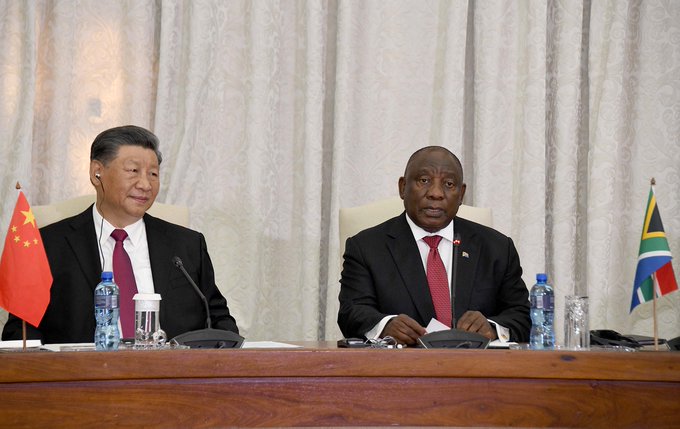
“Together with the new BRICS countries we will infuse new momentum to deepen cooperation,” said Prime Minister Modi.
“When we use the term Global South, it’s not just a new diplomatic term. In the past, we have always opposed colonialism and apartheid. Based on this strong history, we have given new shape to our modern relations,” he remarked.
According to Modi, India has accorded high priority to Africa and has opened 16 new Embassies and High Commissions on the continent.
“India is, today, Africa’s 4th largest trade partner.”
Industrialisation and green transition
Speaking during the dialogue, António Guterres, UN Secretary-General, said Europe was multipolar but lacked multilateral architecture and processes leading to the First World War.
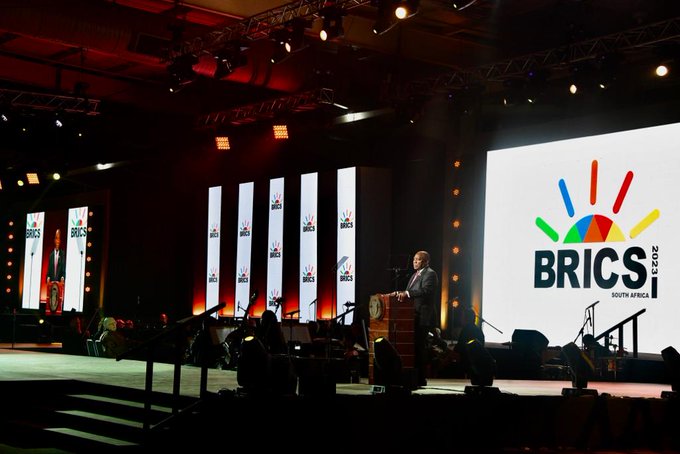
“We are moving to a multipolar world but this alone is not a guarantee of global peace and stability. Look at Europe at the beginning of the 20th century,” he stated.
He added: “I come to Johannesburg with a simple message: There is no alternative to cooperation; we must urgently restore trust and reinvigorate multilateralism for the future and the common good. As the global community moves to multipolarity, we must advocate for a strengthened and reformed multilateral architecture based on the principles of the United Nations Charter.”
On his part, African Union chairperson, Moussa Faki Mahamat, said industrialisation can help further the green transition and that BRICS can help promote and enhance research in pharmaceutical products.
He said vaccine manufacturing in South Africa reinforces that African countries have the capacity to contribute to global development efforts.
“African countries have the capacity to contribute to global development efforts. African countries welcome this partnership and the BRICS New Development Bank, whose objective is to fund development projects while underlying sustainability,” he said.
